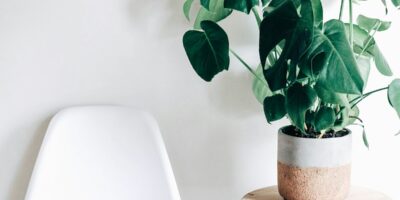Maintaining good indoor air quality in the Pacific Northwest has gotten complicated with all the factors working against us — moisture, wildfire smoke, and seasonal changes all year round. As someone who’s helped homeowners across Washington and Oregon tackle their air quality problems, I learned everything there is to know about what actually works. Today, I’ll share it all with you.
Regular Ventilation

Proper ventilation ensures fresh air circulates through your home. Open windows and doors when outdoor air quality is good. Use exhaust fans in kitchens and bathrooms to expel humid air and odors. Consider installing a whole-house ventilation system if your home is tightly sealed.
Air Purifiers
Probably should have led with this section, honestly — a quality air purifier makes a real difference. These devices remove contaminants including dust, pollen, and smoke particles. Choose one with a HEPA filter for maximum efficiency. Replace filters on the recommended schedule to maintain performance.
Humidity Control

That’s what makes humidity control endearing to us Northwest homeowners — it solves multiple problems at once. Keep indoor humidity between 30% and 50%. Use a dehumidifier in damp areas like basements. In dry winter months, a humidifier helps. Monitor levels with a hygrometer.
Houseplants
Certain houseplants improve indoor air quality naturally. Spider plants, philodendrons, and peace lilies reduce some pollutants. Place them in different rooms for distributed filtering. Just watch for mold growth in plant soil — that can become its own problem.
Regular Cleaning
Dust and vacuum your home regularly. Use a vacuum with a HEPA filter. Clean or replace filters in HVAC systems and air purifiers. Wash bedding, curtains, and upholstery often to reduce dust mites and allergens.
Monitor for Mold
Mold is common in the Northwest thanks to our moisture levels. Inspect your home for mold signs, especially in bathrooms and basements. Use mold-resistant products and clean any traces with soap and water or appropriate solutions.
Use Low-VOC Products
Choose paints, varnishes, and cleaning products labeled low-VOC. These emit fewer harmful chemicals. Look for eco-friendly seals or certifications on packaging.
Maintain Your HVAC System
Regular HVAC maintenance is crucial. Change filters every three months, or more often with pets or allergies. Schedule annual professional inspections and cleaning to keep everything running efficiently.
Smoke Detectors and Carbon Monoxide Alarms
Install smoke detectors and carbon monoxide alarms throughout your home. Test them monthly and replace batteries at least yearly. These devices alert you to dangerous conditions affecting air quality and safety.
Avoid Indoor Smoking
Smoking indoors drastically reduces air quality. Set up a designated smoking area outside. Ask guests to smoke outside to maintain healthier indoor air.
Control Pet Dander
Pet dander triggers allergies for many people. Bathe and groom pets regularly. Keep pets out of bedrooms and off furniture. Use air purifiers to reduce airborne pet dander.
Test for Radon
Radon is a colorless, odorless gas that seeps into homes from the ground. High levels are harmful. Test your home using a radon testing kit. If levels are elevated, seek professional mitigation services.
Minimize Chemical Use
Reduce chemicals in your home. Avoid aerosol sprays and harsh cleaning products. Opt for natural solutions like vinegar and baking soda. Store chemicals in well-ventilated areas or outside.
Address Water Damage Promptly
Water damage leads to mold growth and poor air quality. Fix leaks and dry wet areas quickly. Use fans and dehumidifiers to help. Replace materials that can’t be properly dried.
Check for Asbestos
Homes built before the 1980s may contain asbestos. If disturbed, fibers become airborne and hazardous. Hire a professional to test and safely remove asbestos materials.
Professional Air Quality Testing
Consider hiring a professional for an air quality assessment. They can identify specific pollutants and suggest targeted measures. Periodic testing ensures your efforts are working.
Implement a No-Shoes Policy
Shoes track in dirt, pesticides, and pollutants. Encourage removing shoes at the entrance. Provide slippers or house shoes to wear indoors.
Use Natural Air Fresheners
Commercial air fresheners and scented candles emit synthetic chemicals. Use natural alternatives like essential oils, baking soda, or fresh flowers. Ensure proper ventilation to disperse any odors.



